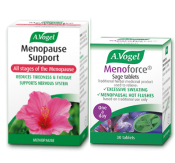An introduction to dry, tired, irritated eyes and menopause
Dry, tired or irritated eyes is a hugely common problem amongst the general population. It is also very common in women after the age of 45, affecting about 60% of menopausal women.
Although a minor health problem, these eye symptoms can affect your quality of life, particularly if they begin to affect your vision or if your eyes become sensitive to light.
Dry or irritated eyes?
Most of us will have experienced the feeling of dryness in our eyes. There are a number of causes for this:
- Being in an air-conditioned room or on an aeroplane – low levels of moisture (humidity) in these environments cause our eyes to dry out more quickly
- Working in front of a computer screen means that we blink less frequently. This encourages our eyes to dry out more quickly
- Dry eyes can be a symptom experienced when one gets older as the tear glands become less efficient and produce fewer tears
- There are a number of specific health conditions, known as autoimmune illnesses, which reduce the amount of tears produced
- Lastly, dry eyes can be one of a number of symptoms of menopause.
Dry eyes during the menopause
With the onset of menopause, women have a greater tendency to suffer from dry eyes. It is not clear why this occurs. One explanation is that the composition of tears alters as the hormones change during this time of life.
Tears have two components – a watery part which lubricates and a sticky part which helps watery tears ‘stick’ to the front of the eyes. Crying produces watery tears and this is why tears can run down one’s face.
Women suffering from dry eyes, paradoxically, also experience watery eyes. Although more tears are produced, they do not ‘stick’ to the eyes well and the front of the eyes dry out.
Dry eyes can become irritated (marked by redness) as the tears do not protect the eyes as well from environmental factors such as pollution. This in turn, makes the eyes feel tired.
What home remedies are there?
If you suffer from dry eyes, the first thing you can do is to treat your eyes kindly, making them feel as comfortable as possible.
If air-conditioning is particularly bad for causing your eyes to dry out, avoid this environment as much as possible. It is also important to remember to blink regularly particularly when reading, driving or using a computer.
Drink plenty of water. When you become dehydrated, one of the first places your body will take fluid from is your eyes. Keeping hydrated is not only important for eye health, but also for your general wellbeing.
Are there herbal remedies to help me?
Herbal remedies are available, both to provide comfort for the eye symptom, but also to tackle the root of the problem.
If your eyes are feeling particularly irritated or dry, then eye drops may bring you quick and effective relief. Euphrasia eye drops soothe and maintain the lubrication of the eyes, and are also safe for contact lens wearers. Both lutein and Euphrasia can be taken internally to help maintain healthy eyes.
However, as the menopause is at the root of your symptom, you may also find that tackling the associated hormone imbalance may bring effective relief from your dry eyes. Soy isoflavones mimic the effect of oestrogen in the body therefore reducing the symptoms of the menopause. This can be found in herbal remedies such as our Menopause Support supplement.
What about conventional medicine?
In the first instance, your doctor is likely to suggest the use of lubricating eye drops which act as ‘substitute tears’.
If symptoms are severe, your doctor may suggest the use of HRT. You may find that some types of HRT improve the condition, while the side effects of others worsen the condition, so you may need to try a few types of treatment before finding the most effective one for you.
If you are concerned about your condition, feel it is deteriorating, experience pain or if your vision is affected, speak to your doctor or optician. Your eyesight is very important and you should take no chances if there is any doubt as to the cause of your symptoms.





 Looking for help to ease those dry, tired and irritated eyes?
Looking for help to ease those dry, tired and irritated eyes?


